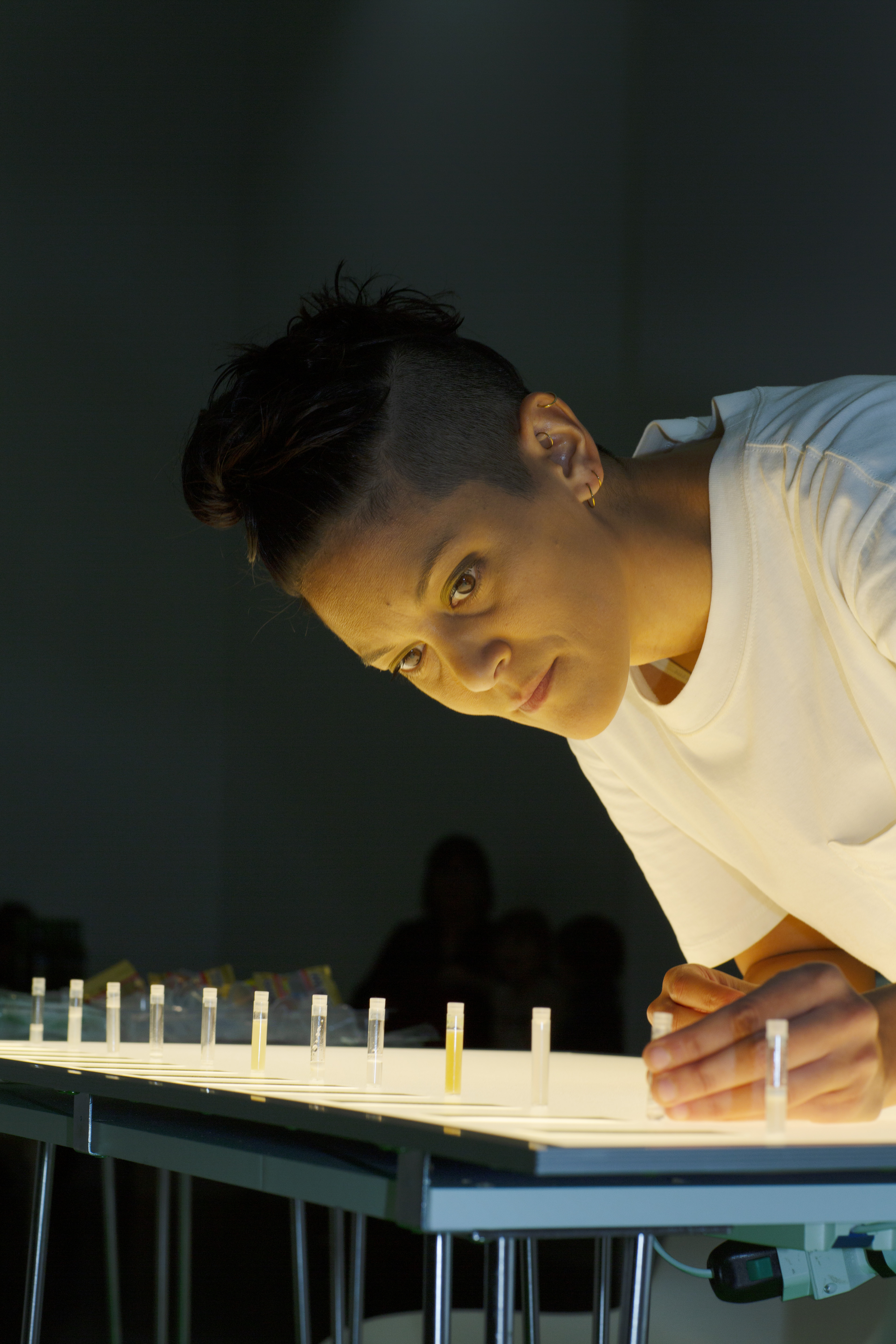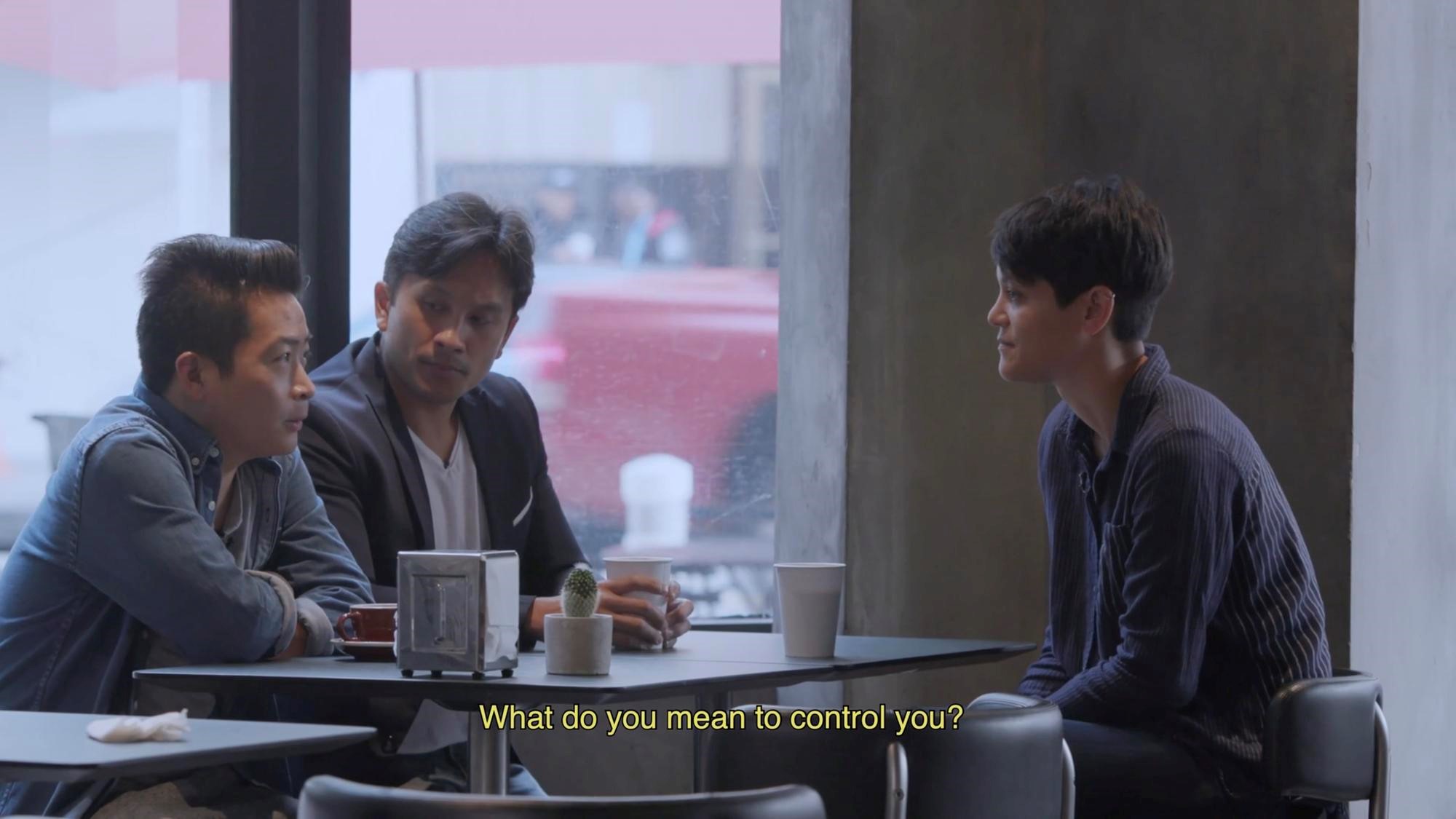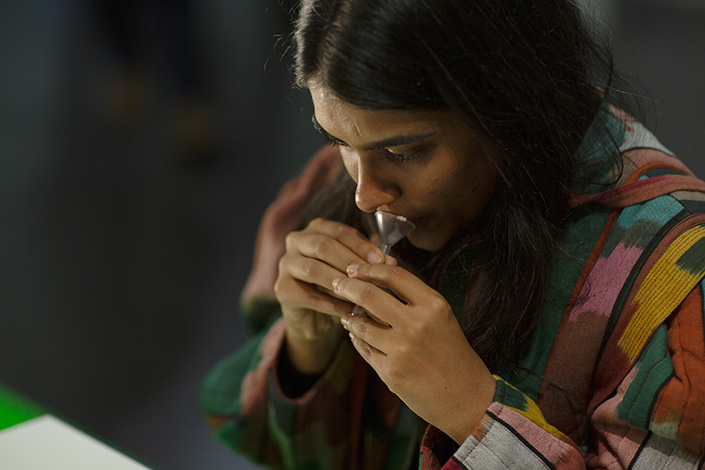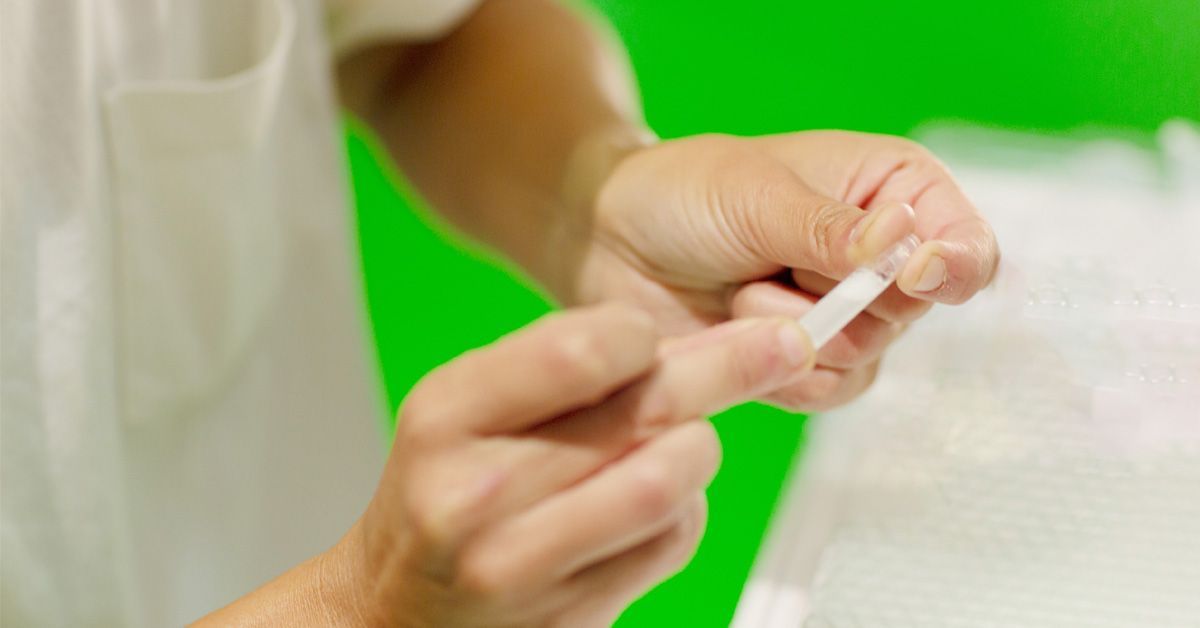Media Artist Lauren Lee McCarthy Confronts the Boundaries of Bio-Surveillance in New Exhibit
UC San Diego’s Mandeville Art Gallery premieres solo exhibition, “Bodily Autonomy,” on March 2
Story by:
Published Date
Story by:
Topics covered:
Share This:
Article Content
Algorithms seem to follow us wherever we go, relentlessly recording and subtly influencing the relationships we have with others. Media artist Lauren Lee McCarthy is fascinated by the potential consequences—a diminishing boundary between self and systems, the embracing of efficiency at the cost of privacy and the cultural impacts when values are imparted in code.
A solo exhibition of McCarthy’s work will open at UC San Diego’s Mandeville Art Gallery on March 2—the largest presentation of the internationally acclaimed artist’s work to date in the United States. Titled “Bodily Autonomy,” the exhibit marks the official premiere of “Surrogate” and “Saliva,” two Creative Capital-funded projects that examine the current state of bio-surveillance and the effects of algorithms on social life. Through performance, video and installation, visitors are invited to consider the implications and future path of genetic development, reproductive technologies and data privacy in a world where individual agency is rapidly diminishing.
“I am captivated by the ways we are taught to interact with algorithms, and how this shapes the way we interact with each other,” explains McCarthy, who is a professor in UCLA’s Department of Design Media Arts. “Central to my work is a critique of the simultaneous technological and social systems we’re building around ourselves. What are the rules, what happens when we introduce glitches?”

A free opening event for “Bodily Autonomy” will be held from 2-6 p.m. on Saturday, March 2 at the Mandeville Art Gallery. The show will be on view at UC San Diego through May 25 before touring to other galleries and museums across the nation. Every Thursday evening from 6 - 8 p.m. during the exhibition’s run, the “Saliva” exchange station will be activated, where visitors can trade their own samples with one another through the assistance of an attendant.
Visitors are also invited to attend the Department of Visual Arts’ Graduate Open Studios event, which will happen concurrently from 2 - 6 p.m. at UC San Diego’s Visual Arts Facility, presenting the work of over 30 MFA and Ph.D. students.
Introducing a glitch in the system
Surveillance in its most basic form is simply information gathering. Many people regularly offer their data unconsciously throughout the day—tracking heart rate and sleeping patterns on a fitness app, submitting a nasal swab for analysis at a clinic, scanning their fingerprint to unlock their cell phone. McCarthy takes a step back from these normalized behaviors and asks, at what point are we relinquishing too much of ourselves?
In “Bodily Autonomy” the artist investigates both ends of the spectrum—what it means to completely surrender bodily control as well as the assurance that comes with claiming ownership of personal data. The exhibition comprises two related projects, “Surrogate” and “Saliva.”
In “Surrogate,” McCarthy offers her body as a remote-controlled surrogate to individuals and couples interested in having a child. Meeting with prospective parents (captured in a video), she explains they will have full control of what she eats, how often she sleeps, what activities she engages in and more through an app. The proposition is never fully realized by the artist, but prompts important conversations about familial norms, legal barriers, genetic manipulation, gender and reproduction.

“The act of becoming a remote-control surrogate serves as a metaphor for the control we may soon hold through processes of genetic engineering, as well as the immediate infringement on our bodily autonomy enacted by the legislation of reproductive rights worldwide,” said McCarthy.
In a counter-gesture that retains personal choice, McCarthy has devised a saliva exchange station where visitors can trade their own samples with one another through the assistance of an attendant. This process, created for the installation titled “Saliva,” sidesteps the anonymity of medical and corporate entities, encouraging participants to ponder data privacy and how issues of race, gender and class play a role in protection of genetic material.
Recreating a retail experience similar to a cocktail bar, an attendant will offer visitors a personalized saliva selection experience, guiding them in choosing the perfect sample based on each donor’s personality as well as physical and lifestyle characteristics. During the exchange, attendants will ask visitors to spit into a vial and complete a profile, one adapted from a sperm donor form. Once their intake is complete, their saliva is filed into the collection on display, and they can select another vial to take home after reviewing other samples.
“We’ve now been trained to regularly swab, spit and give up ownership of our bodily substances to corporations and government-run centers,” said McCarthy. “These fluids hold the data of our DNA, personal information and identity. Can I as an individual human become your saliva deposit center instead? Can we take saliva exchange back into our own hands?”
“The act of becoming a remote-control surrogate serves as a metaphor for the control we may soon hold through processes of genetic engineering, as well as the immediate infringement on our bodily autonomy enacted by the legislation of reproductive rights worldwide."

Artmaking and algorithmic living
McCarthy describes herself as “an artist having social relationships in the midst of automation, surveillance and algorithmic living.” Her work critiques the technological systems in our lives, often through unique media embodiments, such as becoming a human version of Amazon’s “Alexa” in her project, “LAUREN,” for which she was awarded the IDFA DocLab Award for Immersive Non-Fiction.
McCarthy is also the creator of p5.js, an open-source art and education platform that prioritizes access and diversity in learning to code, with over 10 million users. She has received grants and residencies from Creative Capital, United States Artists, LACMA, Sundance, Eyebeam, Pioneer Works, Autodesk and Ars Electronica. Her work has been exhibited internationally, including the Barbican Centre, Fotomuseum Winterthur, Haus der elektronischen Künste, Seoul Museum of Art and Gallery Dublin.
The “Bodily Autonomy” exhibition is organized by Ceci Moss, director and chief curator for UC San Diego’s Mandeville Art Gallery. Administered in the School of Arts and Humanities, the gallery is an institute for transformative contemporary art, with a five-decade history of presenting innovative exhibitions by pioneering artists such as McCarthy in the context of a major research university. The space, newly reopened after extensive renovations that happened in March 2023, serves both the university and local community.
You May Also Like
ALERTCalifornia Awarded 2025 Special Achievement in Geographic Information Systems (GIS) by Esri
Science & EnvironmentStay in the Know
Keep up with all the latest from UC San Diego. Subscribe to the newsletter today.




